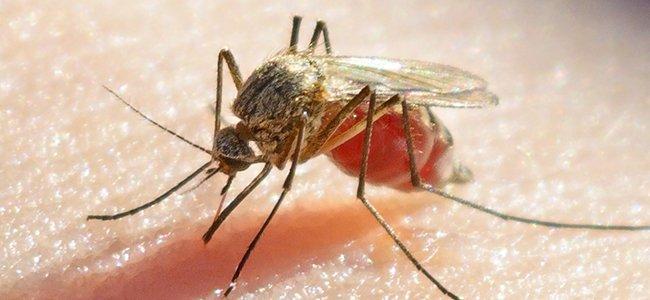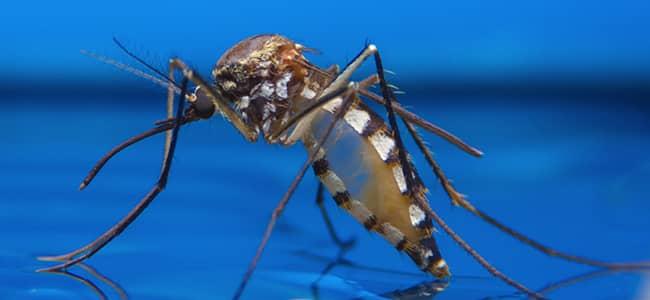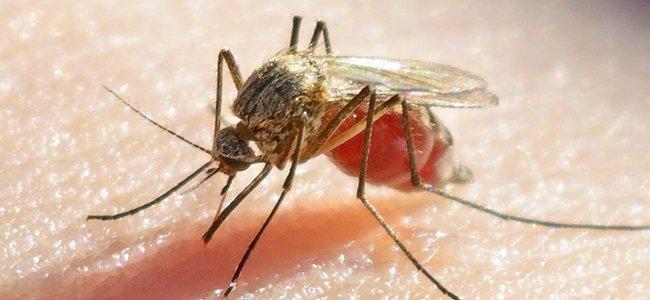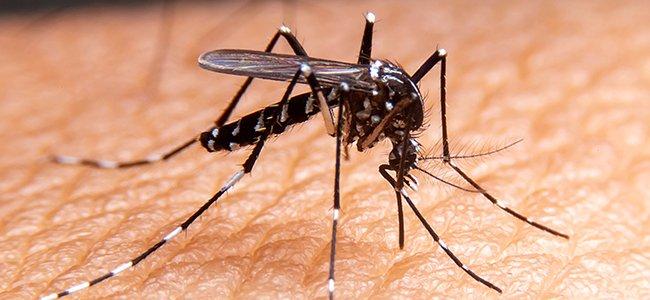
Maryland's Complete Guide To Effective Mosquito Control
08/13/2021
The mosquito! You may not think much of them at first, but these blood-feeding insects may be the most dangerous creatures on North American lawns....
READ MORE >

We've been getting a lot of rainfall in our extensive service area lately. It has led to flooding up and down the east coast, and DC is no exception. The biggest concern with flooding is that it can lead to catastrophic property damage and a loss of human life, but there is a secondary threat that is sometimes overlooked; all that water helps mosquitoes reproduce faster, specifically, mosquitoes in the genus known as Aedes.
Two mosquitoes that are a particular threat in the United States are the Aedes aegypti and Aedes albopictus. This is because they are most responsible for the spread of harmful arboviruses like dengue fever, West Nile virus, chikungunya, yellow fever, Zika virus, and several forms of encephalitis. The last thing we need in DC are more of these mosquitoes buzzing around. Yet, it is unavoidable.
When flood waters recede, they leave behind stagnant water for mosquitoes to breed in. A single female mosquito can lay 100 eggs every third night after she has had a blood meal, and she will usually lay eggs three times before dying. So, an individual female can produce 300 more mosquitoes with one blood meal. All she needs is a suitable breeding site. That is why breeding-site control is key to mosquito reduction.
Remove any resource of standing water in your yard. Inspect exterior spigots and hoses for leaks. Clean leaves and other debris out of gutters. Loosen any compacted soil and create gradients for water to channel away from your foundation. Turn kiddie pools over when they're not being used. Empty containers. Poke a hole in a tire swing to allow drainage. And implement other, similar strategies to prevent still stagnant water.
When routine mosquito control is applied by a certified pest professional, something pretty amazing happens; not only does it work to stop mosquitoes from reproducing in your yard, it will reduce mosquitoes in your neighbor's yard as well.
You might not think that you have all that much control over what your neighbor does about mosquitoes, and you would be right. But what you are able to do is prevent mosquitoes that come into your yard from returning to your neighbor's yard to reproduce in the breedings sites your neighbor hasn't addressed.
When mosquitoes hide from the midday sun--and they will--they will be exposed to the residual left in your landscaping by your pest control professional, during your scheduled visit. This residual isn't strong enough to harm your children, your pets, or wildlife that come into your yard. It is only strong enough to eliminate bugs.
An additional benefit to mosquito control is the control of ticks. Ticks and mosquitoes share common hiding spots and the misting treatment used to knock down mosquitoes works to eliminate ticks as well.
If you've considered investing in mosquito control, it isn't too late. As long as the temperatures in DC stay above 50 degrees, mosquito eggs can continue to hatch, and those mosquitoes can continue to plague us. As we continue to experience higher-than-expected rainfall, mosquito populations are going to continue to increase at a frustrating rate.
Find out more about mosquito control in our service area of D.C., MD, and VA by going to our mosquito control page or take the next step and request a free estimate. We look forward to helping you protect your property from irritating and harmful mosquitoes and ticks.

08/13/2021
The mosquito! You may not think much of them at first, but these blood-feeding insects may be the most dangerous creatures on North American lawns....
READ MORE >

07/15/2021
Warm weather has returned, and so have mosquitoes. You do your best to avoid these annoying insects and the itchy bites they inflict, but constantl...
READ MORE >

06/22/2021
It's Pest Prime ...
READ MORE >

06/21/2021
If you’ve wondered what you can do to get the mosquitoes on your property under control, you’ll benefit from learning what Maryland pro...
READ MORE >

Protect your home and family from nuisance and potentially damaging pests with a Preferred Care home pest control plan. Starting at $49/month

Don't let the bed bugs bite a second longer. Contact American Pest for the most comprehensive bed bug control in the industry. Learn More

Our certified rodent control pros will put an end to your frustration by getting rid of rats and mice inside your home. Learn More

Say goodbye to wood-destroying termites in your home when you contact American Pest for expert termite control. Learn More

Trust American Pest to deliver professional backyard tick control services that are guaranteed to get results. Learn More

Don't spend the warm-weather season indoors, find out how American Pest's professional treatments get rid of mosquitoes. Learn More
Fill out the form and recieve feedback in less than 5 minutes. For immediate service please call.